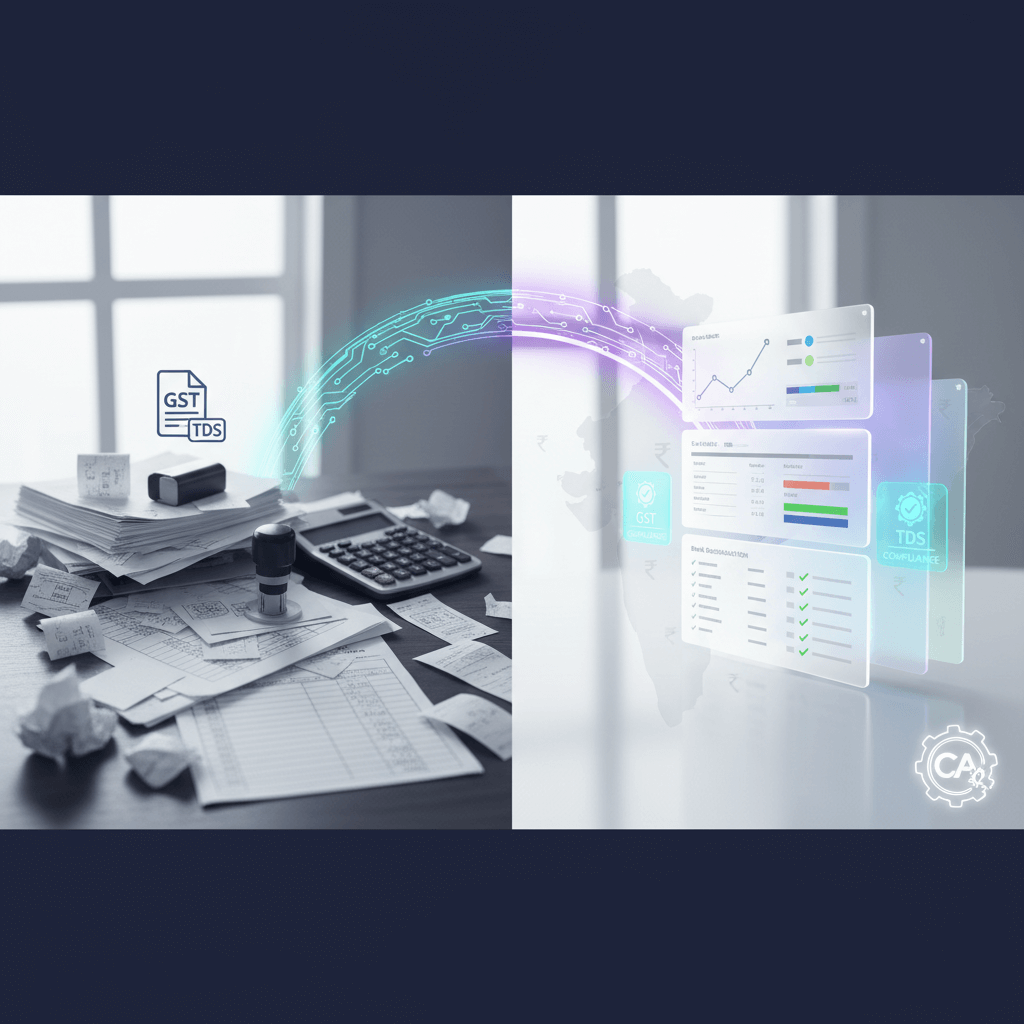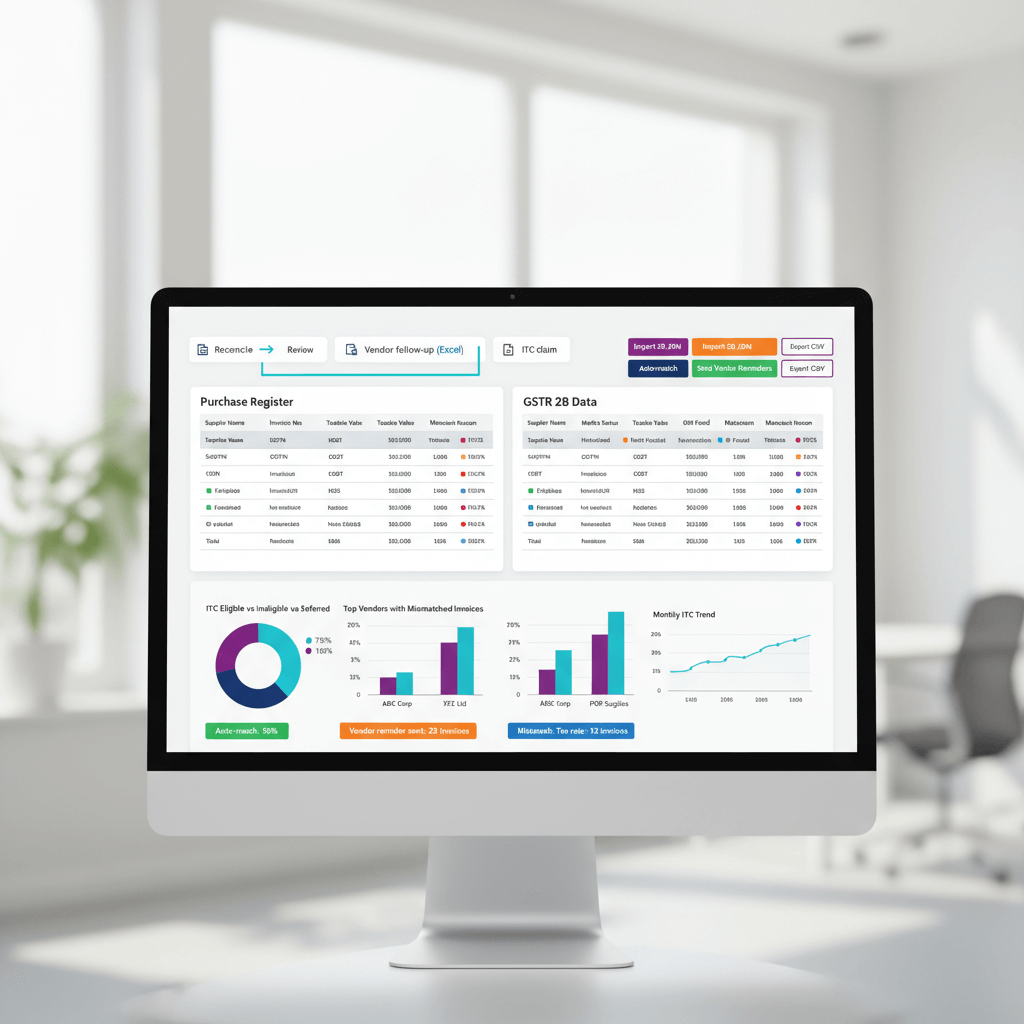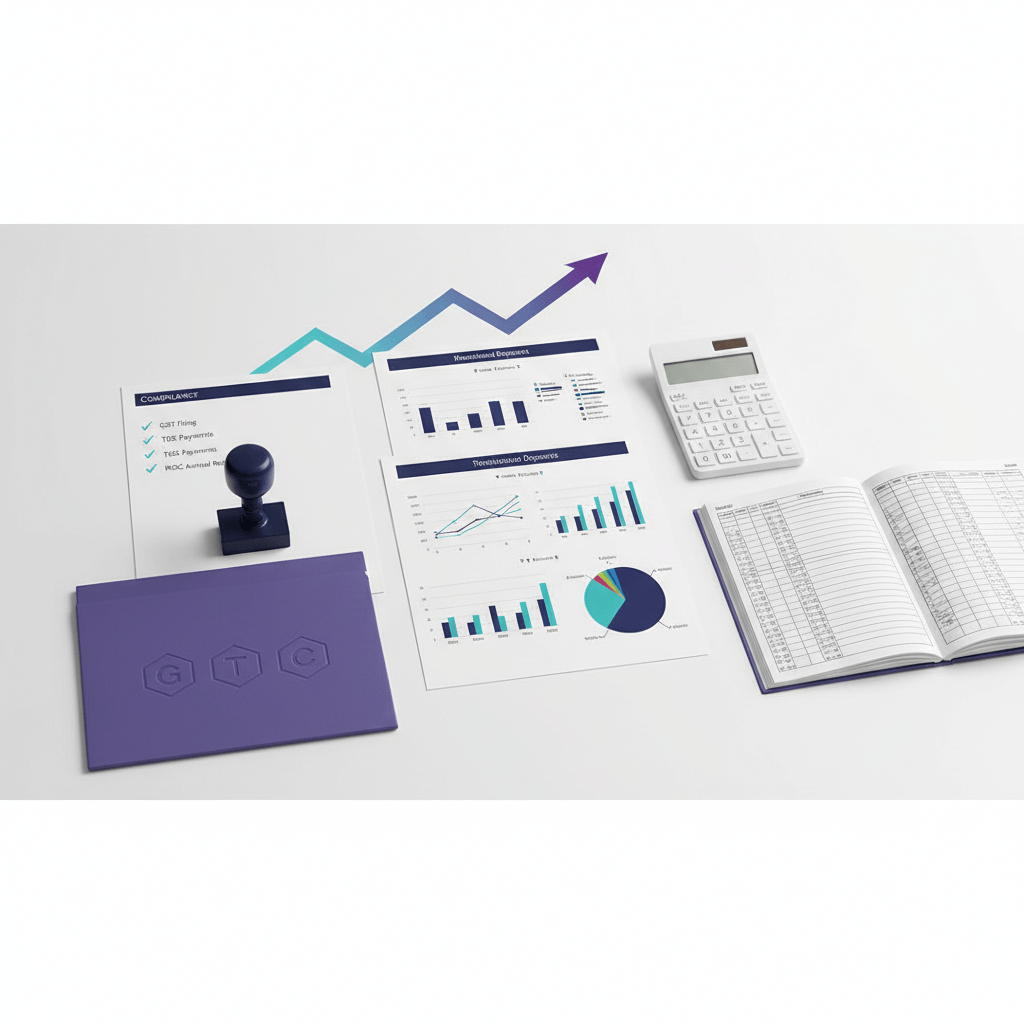Key takeaways
- Ethical AI adoption in audit demands transparency, accountability, and professional judgment.
- Data privacy regulations like India’s DPDPA require strict data handling and security standards.
- Regulatory frameworks are evolving, urging proactive governance over reactive compliance.
- Balancing AI efficiency with human expertise prevents overreliance and contextual misses.
- Ongoing training, algorithm audits, and clear AI policies fortify ethical implementation.
Introduction
The landscape of audit and financial oversight is transforming rapidly. AI adoption in audit is increasing in India among chartered accountants and finance professionals adapting to digital-first processes. From automated bookkeeping to intelligent anomaly detection, artificial intelligence is reshaping how we approach financial verification and compliance.
Tools such as AI Accountant are automating reconciliation, ledger mapping, and anomaly detection, making audits more efficient and often more accurate. But as these powerful systems become integral, how do we ensure responsible usage? The ethics of using AI in audit is coming sharply into focus. The Ethics of Using AI in Audit
What Are the Core Ethics of Using AI in Audit?
The principle of ethics in audit and AI refers to fairness, accountability, objectivity, and transparency applied to machine driven processes.
AI offers benefits such as reduced human bias, real time anomaly detection, and broader audit scope. Machine learning algorithms process thousands of transactions in minutes, spotting patterns without fatigue or personal bias.
“When an AI system flags a transaction as suspicious, can you clearly articulate why to your client or a regulator?”
Yet black box algorithms bring ethical blindness. Historic data may embed bias, leading to unfair treatment of certain vendors. Auditors must challenge unclear AI results and maintain accountability.
Consider this scenario: An AI tool classifies payments to regional vendors as higher risk compared to multinational suppliers, perpetuating unfair bias. A responsible auditor investigates and adjusts the AI model accordingly. Read more
Data Privacy in AI Tax Tools: Protecting Client Information
AI based tax and audit tools handle sensitive client and taxpayer data, requiring top tier security and confidentiality.
India’s Digital Personal Data Protection Act (DPDPA), 2023 mandates explicit consent, data minimization, and strict penalties. AI tools must incorporate privacy by design, processing only necessary data.
Users should verify that AI Accountant follows international standards such as ISO 27001 and SOC2 Type 2 certifications. AI Accountant is now SOC 2 Type II certified
Key questions include: Where is data stored? Who accesses it? Can data be deleted on request? Compliance builds client trust while safeguarding practices.
The Role of Regulatory Guidance on AI Compliance
India’s regulatory landscape for AI in audit remains principles based, with no formal AI compliance standard issued by regulators.
The DPDPA and National Strategy for Artificial Intelligence emphasize transparency, yet gaps exist compared to the EU AI Act. Proactive audit firms establish internal governance frameworks, including bias testing and algorithm audits.
Firms that document AI decision processes and stay engaged with industry developments will lead in responsible AI adoption. AI accounting software comparison India
Institute of Chartered Accountants’ AI Policy: Current Status and Expectations
As of mid 2025, ICAI has not issued specific AI guidelines, prompting members to apply traditional ethical standards to new digital tools.
There’s a growing call for ICAI to craft AI governance policies, drawing on frameworks from AICPA and IFAC. Topics include AI literacy requirements, quality control standards, and documentation protocols.
Forward thinking CAs are developing internal AI policies to maintain consistency until formal guidance emerges. Can CA firms survive in the age of AI?
Balancing Human Judgment and AI Systems in Financial Oversight
AI serves as a tool that amplifies, rather than replaces, human expertise in audits.
Overreliance risks errors: AI may flag legitimate business practices as suspicious without contextual understanding.
- AI surfaces anomalies, humans interpret context.
- Automation handles routine tasks, auditors focus on discretion.
- Continuous calibration ensures balance as AI evolves.
For example, AI Accountant acts as a “quiet assistant,” expediting reconciliation while freeing CAs to deliver strategic advice. AI Accountant vs Human Accountant
Best Practices for Ethical AI Implementation in Audit
Systematic planning combines technical safeguards with human oversight.
- Due diligence on AI tool selection:
- AI Accountant (aiaccountant.com) offers automation, ledger mapping, ISO 27001 and SOC2 Type 2 certifications.
- MindBridge AI for advanced anomaly detection.
- DataSnipper for documentation automation.
- Inflo for workflow optimization.
- CaseWare IDEA for data analytics.
- Establish internal governance: document override policies, review protocols, and compliance requirements.
- Regular algorithm audits to detect bias and performance drift.
- Staff training on professional skepticism and AI output evaluation.
- Transparent client communication on AI usage and safeguards.
Intelligent ledger mapping AI India
Addressing Common Ethical Dilemmas in AI Assisted Audits
Proactive scenario planning helps manage dilemmas:
- Transparency: explain AI findings and validation steps.
- Bias detection: monitor vendor risk classifications for unfair patterns.
- Accountability: document responsibilities when AI errors occur.
- Data quality: maintain protocols for consistent, accurate inputs.
- Scope creep: align additional findings with client consent and fees.
Future Proofing Your Practice: Preparing for Evolving AI Ethics
The AI ethics landscape will grow more detailed, mirroring trends in jurisdictions like the EU.
Audit professionals should:
- Build strong ethical frameworks now for easy adaptation.
- Develop skills to oversee complex AI and maintain professional skepticism.
- Advocate for AI ethics education in certification programs.
- Prepare for multi jurisdictional compliance as clients expand globally.
AI impact accounting jobs India
FAQ
How do I ensure transparency when using AI Accountant in audits?
Maintain detailed documentation of AI inputs, decision processes, and override actions. Explain to clients how AI surfaces anomalies and describe your validation steps.
Can AI Accountant replace human judgment in risk assessment?
No, AI Accountant excels at processing data, but human auditors must interpret context, assess materiality, and apply professional skepticism.
What data privacy measures should I demand from AI tax tools?
Verify explicit consent processes, data minimization, secure storage, retention policies, and deletion capabilities. Ensure certifications like ISO 27001 and SOC2.
How do I test AI algorithms for bias?
Conduct regular algorithm audits by comparing AI outputs against control datasets. Look for systematic discrepancies affecting specific vendor groups.
What governance framework should my CA firm adopt for AI?
Develop internal policies on AI tool selection, override protocols, documentation standards, and quality control measures aligned with ICAI ethics.
How can I balance AI efficiency with professional judgment?
Assign routine data tasks to AI, focus human effort on exceptions, consulting, and complex decision making. Continuously recalibrate task boundaries.
Do I need to seek client consent for AI assisted audits?
Yes, inform clients about AI usage, data handling procedures, and confidentiality safeguards to obtain explicit consent under DPDPA guidelines.
How should I document AI assisted audit work?
Combine AI logs, algorithm audit reports, and human review notes in your audit files to demonstrate professional oversight of automated outputs.
What are the liability concerns when AI tools err?
Ensure clear policies assigning responsibility for AI recommendations and overrides. Maintain professional liability coverage that includes AI related risks.
How do I stay updated on AI ethics and regulations?
Engage with ICAI updates, industry associations, regulatory announcements, and continuous professional development programs focused on AI ethics.
-01%201.svg)





